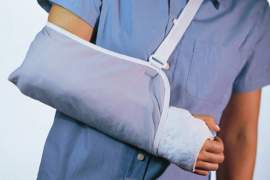
Types of Personal Injury Cases

Popular In Personal Injury
Damages Compensation Personal Injury Settlement Calculator Proximate Cause Personal Injury Lawsuit Injury Examples Of Personal Injury Cases Personal Injury Settlement Personal Injury Lawyer How To File A Personal Injury Accident Claim Personal Injury Protection Pip Personal Injury Law Firm
Automobile Accidents
Automobile accidents are a common type of case in personal injury law. The innocent party involved in the accident will be able to collect damages for the injuries. There are certain steps that drivers should take when involved in an accident to ensure that they will be able to collect damages. All of the names and information for drivers and witnesses should be collected, including insurance information. This will also include the information for the police officers that respond to the scene of the accident. The drivers should note all damages to the vehicle and injuries to their person. It is beneficial if pictures can be taken. Also, if one driver initially claims responsibility for the accident, this should be noted. The injured party should keep record of all medical expenses, because this can be reimbursed in the personal injury suit. The injured driver may also be compensated for damage to the vehicle, lost wages, future lost wages, and possibly for emotional pain and suffering.
Medical Malpractice
Medical malpractice refers to an act of negligence by a medical practitioner that results in the death or injury of a patient. Under personal injury law, the injured party may sue and collect damages for medical malpractice. In order for plaintiffs to collect, they must prove that the professional had a legal duty to care for the patient. This duty must be breached by some incorrect action or inaction by the practitioner.
There must be proximate cause, meaning that the patient's injuries were due directly to the doctor's actions. Also, the injuries must constitute actual damages. Many medical malpractice suits are settled, but some will continue to trial. If the plaintiff is able to prove that all conditions for medical malpractice exist, then he or she will be awarded damages. Damages will include reimbursement for medical expenses, lost wages, future lost wages, and/or pain and suffering.
Mesothelioma/Asbestos Cases
Mesothelioma is a type of cancer that affects the lining of the body's organs, usually the lungs. The main cause of mesothelioma is exposure to asbestos. This is often found in worker who were exposed to the substance on a job site, and breathed in the particles. Many personal injury law suits have been against companies who knew of the dangers of asbestos, but still continued to use the substance. As soon as a person is diagnosed with mesothelioma, he or she may sue to collect damages from the employer.
However, many times these suits will result in a settlement. There is a statute of limitations on mesothelioma cases which is why a person should obtain a personal injury attorney immediately. In a case where the plaintiff has died before the conclusion of the trial, the family members of the victim may be able to obtain damages on that person's behalf.
Products Liability
Products liability is a type of personal injury case where a plaintiff may sue a manufacturer for damages if he or she is injured by a product. A products liability cases will result from a defective product. A product may be defective because of a manufacturing defect, a design defect, or because of a failure to warn. A manufacturing or design defect will result from some kind of flaw in the design or making of the product in question.
Failure to warn refers to negligence by the manufacturer, because the company failed to take precautionary measures and warn the consumers of the possible danger. A manufacturer will only be liable for damages if the consumer was using the product in the correct way. If the consumer was misusing the product in some unreasonable way, he or she may not be eligible to collect. Some products liability cases will be considered strict liability. This means that the manufacturer will be responsible for damages regardless of whether or not the manufacturer was negligent.
Defective Medicines
Defective medicines is a type of personal injury case where a plaintiff can collect damages if that person consumed a medication that caused injury. Injuries resulting from a defective medicine will include resulting medical conditions or harmful side effects that were not cautioned by the manufacturer. These law suits are often class action suits because they will affect many plaintiffs at once. After taking a defective drug a plaintiff can collect for medical expenses, lost wages, future earnings, and/or pain and suffering. There is usually a statute of limitations in defective medicine cases, which is why it is important to act right away. The pharmaceutical company may also be liable for punitive damages to act as a punishment to defer future behavior.
Workplace Injuries
When a plaintiff is injured at his or her place of employment, it will be classified as a workplace personal injury case. Injuries will include damages from an accident, such as a slip and fall, or an illness that is caused by the workplace environment. When filing a workplace injury law suit it is required that the injury is directly related to the working conditions, and it must take place on the property of the employer.
This may be an accident that results from unsafe working conditions or exposure to harmful substances. Psychological conditions that result from extremely high stress working conditions may also be actionable under personal injury law. When collecting damages it must be shown by the plaintiff that the employer did not take the necessary precautions to try to protect the worker. Compensation will include lost wages, future earning, reimbursement for medical expenses, and/or pain and suffering.
NEXT: A Guide for the Understanding Personal Injury





















